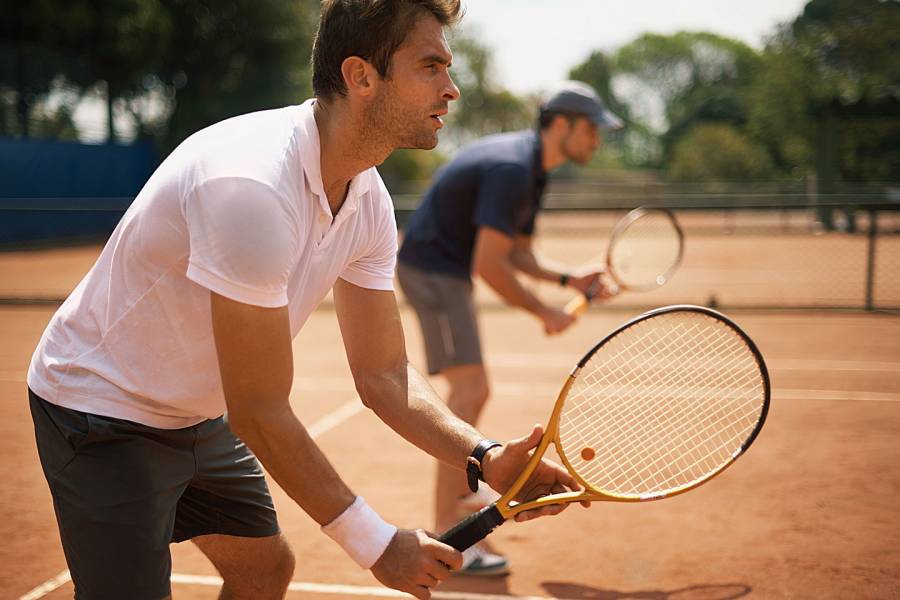This content is provided to Johns Hopkins employees through a partnership with EHP.
July is Parks and Recreation Month, and there's nothing like stepping outside to enjoy summer's warmth and sunshine. Now is the perfect time to enjoy the great outdoors while improving your fitness and overall health.
Exercise is important for everyone, no matter your age or health status. Even if you have a condition such as heart disease, diabetes, obesity, or arthritis, exercise can help. It can improve issues such as high blood pressure, difficulty balancing, or problems walking.
Physical activity also can help you avoid many diseases and disabilities that develop with age. These include heart disease, certain types of cancer, and osteoporosis. Regular physical activity can boost your mood, reduce feelings of depression, improve your focus, and make you feel better overall.
Find your favorite activity
Ready to get moving? The Centers for Disease Control and Prevention recommends that older adults get 30 minutes of moderate-intensity physical activity, such as brisk walking, most days of the week. You also should do exercises that strengthen your muscles two or more days per week.
Summer weather provides many opportunities for everyone to be active outdoors, and many of these activities are suitable for those with disabilities:
- Walking the dog or with friends
- Hiking
- Bicycling
- Water aerobics
- Tennis
- Golf
- Softball
- Basketball
- Badminton
- Swimming
- Snorkeling
- Boating—canoeing, rafting, rowing, sailing, paddle boarding, or kayaking
- Fishing
- Gardening or yard work
- Playing with grandchildren, such as pushing them on the swings, playing hopscotch, or enjoying T-ball together
- Outdoor tai chi
- Bocce
- Shuffleboard
- Horseshoes
Safety first
If you're an older adult who hasn't exercised in a while or who has a medical condition or has recently had surgery, it's a good idea to talk with your doctor before increasing your activity level. If you're at risk for falls, ask your doctor if any activities pose a fall risk for you.
Since you're going to be spending more time outside, be sure to protect your skin from the sun and drink plenty of water, especially in the heat. Drink water before, during, and after exercise.
Make it happen
One of the best ways to stick with an exercise program is to be active with others. You could ask friends, family members, or neighbors to see whether they want to try an outdoor activity with you. If you're an older adult, you can look for a walking club or exercise class at a nearby senior center or your local recreation department.
Above all, make it fun. When you enjoy what you're doing, you're more likely to do it. Soon, you'll be living a healthier, more active life.
Posted in Health+Well-Being
Tagged hr newswire








